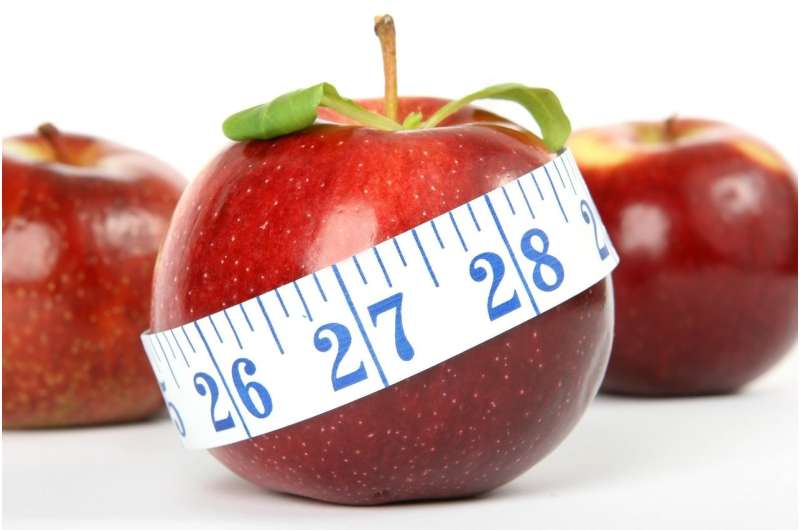
Credit: CC0 Public Domain
A new review has found that calorie labeling of food on menus and products leads people to choose slightly fewer calories.
The research team, led by scientists from UCL, Bath Spa University, the University of Cambridge and the University of Oxford, examined evidence from 25 studies on the impact of calorie labeling on food selection and consumption. They found that calorie labels in supermarkets, restaurants and other food outlets led to a small reduction in the calories people selected and purchased. The average reduction was 1.8%, which would equate to 11 calories in a 600 calorie meal—or around two almonds.
The work appears in the Cochrane Database of Systematic Reviews.
Small daily changes in energy consumption can have significant effects if sustained long-term, and most adults tend to gain weight as we age. THE UK government report estimated that 90% of 20–40 year olds in England will gain up to 9 kg over ten years, and that reducing daily energy intake by 24 calories per day—roughly 1% of the recommended intake for adults—would prevent this increase.
“Our review suggests that calorie labeling leads to a modest reduction in the calories people purchase and consumption,” says senior author Dr. Gareth Hollands from the UCL Social Research Institute, also Senior Visiting Fellow at the University of Cambridge.
“This may have some impact on health at the population level, but calorie labeling is certainly no silver bullet. Our previous version of this review from 2018 reported a potentially larger effect, but was inconclusive because there was significant uncertainty over the results. This update has reduced that uncertainty, and we can now say with confidence that there is very likely a real, albeit modest, effect.”
The new update compiles evidence from 25 studies with a strong emphasis on real-world field settings, with 16 of the studies being conducted in restaurants, cafeterias, and supermarkets. The studies that were analyzed encompassed over 10,000 participants from high-income countries, including Canada, France, the United Kingdom and the US. Only two of the studies included alcoholic drinks, and their results were too uncertain to draw any meaningful conclusions.
“This review strengthens the evidence that calorie labeling can lead to small but consistent reductions in calorie selection,” says lead author Dr. Natasha Clarke of Bath Spa University, who began the project at the University of Cambridge. “While the overall impact on individual meals or food purchases may be modest, the evidence is robust. The cumulative effect at a population level could make a meaningful contribution to public health, especially as calorie labeling becomes more widespread.”
While calorie labeling shows promise, concerns remain about its possible impact on people at risk of disordered eating. The review noted a lack of data in the included studies on possible harms, including mental health impacts, and the authors recommend future research to assess this.
“Calorie labeling to reduce the calories that people consume remains somewhat contentious, both in terms of whether it has any effect, and whether potential benefits outweigh potential risks or harms,” says Dr. Hollands. “We can now say with considerable confidence that it does have a small but potentially meaningful effect on people’s food choices. Labeling may therefore have a useful role, ideally alongside a broader set of approaches that place more burden on industry rather than individuals, such as taxes, marketing restrictions and reformulation.
“However, we should not expect miracles, and any implementation of calorie labeling must balance the many potential positive and negative impacts of such policies.”
More information:
Calorie (energy) labeling for changing selection and consumption of food or alcohol, Cochrane Database of Systematic Reviews (2025). DOI: 10.1002/14651858.CD014845.pub2
Provided by Cochrane
Citation: Calorie labeling leads to modest reductions in selection and consumption (2025, January 16) retrieved 16 January 2025 from
This document is subject to copyright. Apart from any fair dealing for the purpose of private study or research, no part may be reproduced without written permission. The content is provided for information purposes only.

